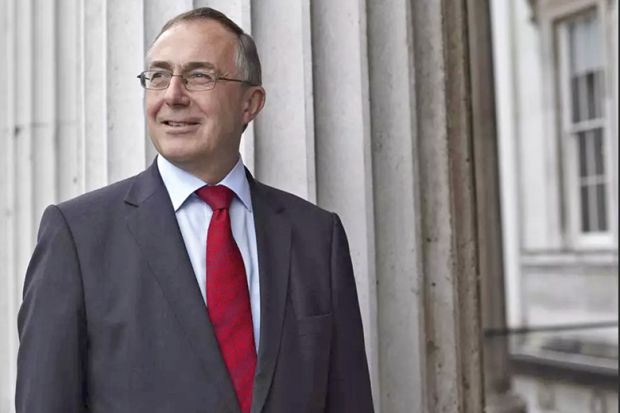The next president of UCL should re-engage with academics and rethink the future of the institution, according to a union leader.
Michael Arthur announced earlier this month that he would step down in September 2020 after seven years at the helm.
Professor Arthur said that having spent nearly two decades as a university leader – he was vice-chancellor of the University of Leeds between 2004 and 2013 – he was “looking forward to pursuing new and different opportunities”.
Professor Arthur has overseen significant expansion of UCL’s student numbers and research activities, and he led the development of the institution’s new £516 million campus, UCL East, on the Olympic Park site in Stratford, east London.
But he has also contended with long-running staff discontent over an alleged top-down management style, and concern that the UCL East project could jeopardise the institution’s financial stability.
Sean Wallis, president of the University and College Union branch at UCL, said that there had been a “series of tensions within the university” during Professor Arthur’s tenure. However, he acknowledged that the key challenge, UCL East – “which may well turn out to be a white elephant” – was inherited from Professor Arthur’s predecessor, Sir Malcolm Grant.
Last year, UCL lecturers successfully pressed for an inquiry into the institution’s governance aimed at “re-establishing academic values” at the centre of how the university is run.
For UCL to “survive and flourish” over the next decade, academics needed to be recognised as an “asset to the university” and to be listened to, said Mr Wallis, rather than “allowing a clutch of senior managers to run the university behind the backs and over the heads of the academic staff”.
“To be fair, they are not equipped to make a distinction between what is good and not good in academic terms, and what would be worthwhile in academic terms,” said Mr Wallis, a principal research fellow at UCL.
The university has launched a global search for a successor for Professor Arthur.
Mr Wallis said the “ideal next provost” would be somebody who said, “Let’s stop what we have been going, let’s pause for a bit and have a think, [asking] are we doing the right thing,” and who then engaged staff in that exercise.
“If you do those things, then people would respond because I think if senior academics are nostalgic for Malcolm Grant, that tells you something,” he added.
“They are nostalgic for at least the idea that they might be respected enough to be actually talked to, so that their voices actually matter” and they are not merely consulted after the fact.
The new provost needed to be able to carry people with them, but also to reach out and say, “nothing is off the table”, including “managing and curtailing the budget on some of these [UCL East] build costs”, Mr Wallis said.
A UCL spokesman said the university was “committed to being as transparent as it can be in all financial and governance issues relating to its activity and is working on improving channels of communication with all parts of its academic community”.
“We are actively considering the best way to improve some of the structures of governance, both for council and for the academic board. This work is being spearheaded by UCL president and provost Professor Michael Arthur, with the full support of the deans of UCL, who represent our large and diverse academic body.”
请先注册再继续
为何要注册?
- 注册是免费的,而且十分便捷
- 注册成功后,您每月可免费阅读3篇文章
- 订阅我们的邮件
已经注册或者是已订阅?

